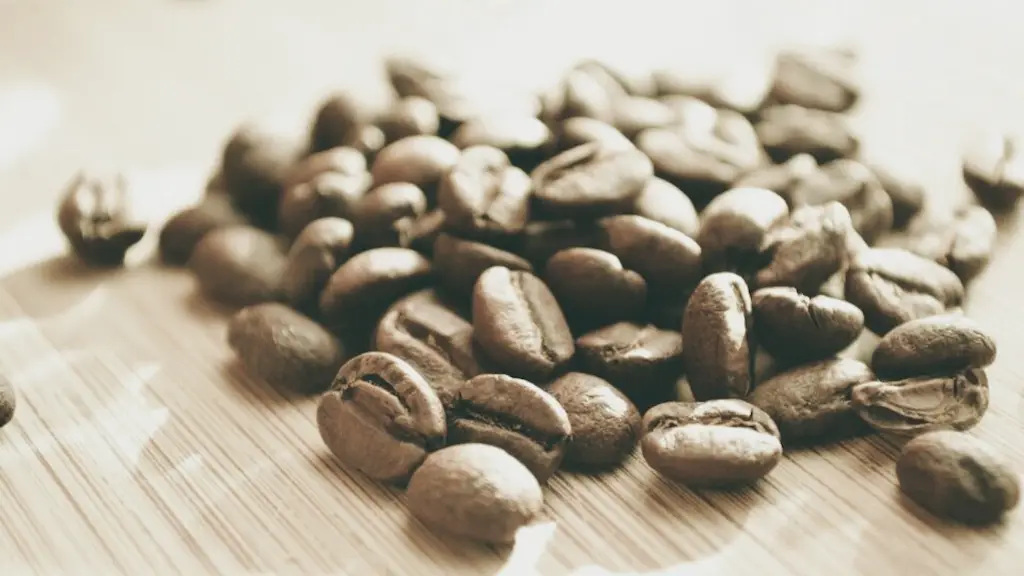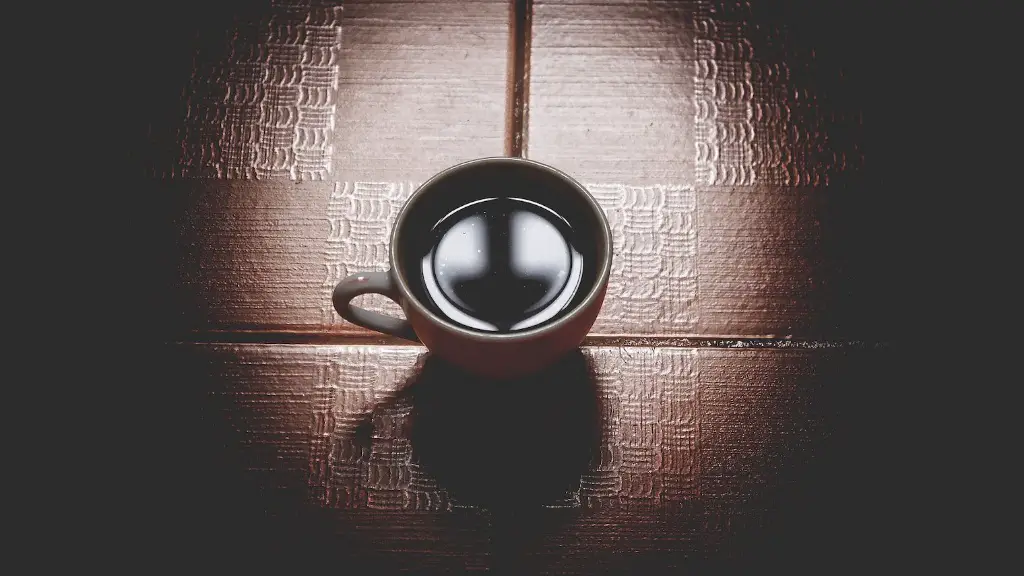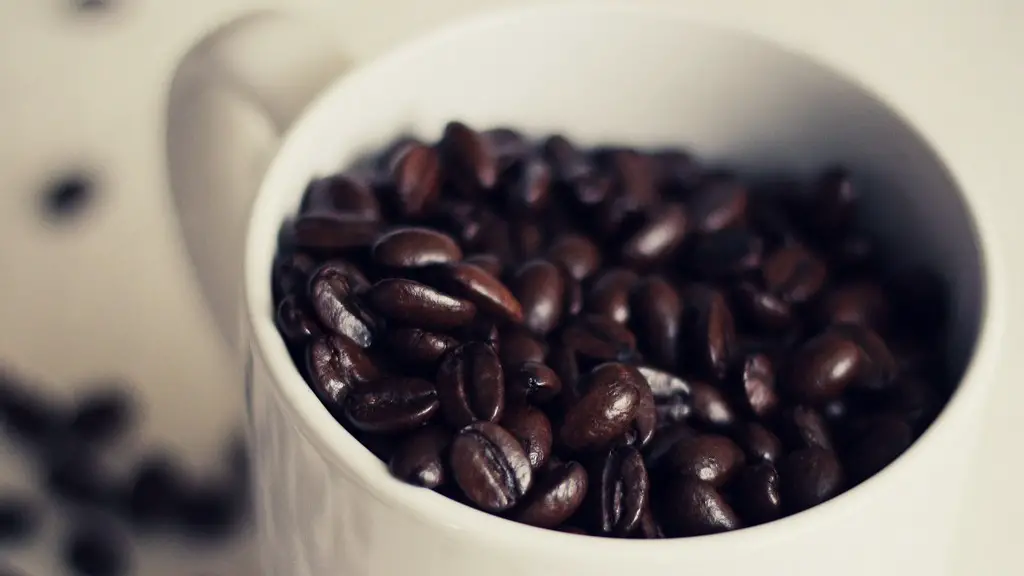For many of us, coffee has become an integral part of our daily lives and the thought of having to go without it can be difficult to imagine. But when it comes to fasting for blood work, the general advice is to abstain from coffee and other caffeinated beverages. Since coffee is known to alter blood sugar levels, it can interfere with the results and render them inaccurate. This article will provide you with an in-depth view on why you should avoid drinking coffee while fasting for blood work.
The main reason why people fast prior to having blood tests conducted is to allow the body to clear glucose from the blood. The human body needs energy, which we typically get from glucose. When blood sugar is too high, it can interfere with the accuracy of certain tests, including those that measure glucose, cholesterol, and insulin. Because caffeine has been shown to be able to raise blood sugar levels, it is recommended to avoid consuming coffee when fasting.
Studies have shown that drinking coffee can raise blood sugar levels. This is due to the stimulant effects of caffeine, which causes the body to release glucose in the bloodstream. An increase in blood sugar can interfere with the accuracy of tests and provide inaccurate results. It is important for results to be accurate in order for evaluation and diagnosis of health conditions.
In addition to raising blood sugar levels, coffee can also increase stress hormones. When the body is stressed, it releases cortisol, which can also raise blood sugar levels. A high cortisol level can lead to inaccurate results and make diagnosis of health conditions difficult. It is important to avoid stressors, such as drinking coffee while fasting for blood work.
It is also important to note that not all blood tests require fasting. Fasting is only necessary when certain tests need to be conducted, such as tests for glucose or insulin. For these tests in particular, it is recommended to abstain from coffee and other caffeine-containing beverages.
Finally, when it comes to fasting for blood work, it is important to keep in mind that caffeine can remain in the system for several hours. Therefore, you should limit your coffee intake even before beginning your fast. To be safe, avoid coffee and other caffeine-containing beverages at least 8 hours prior to the test.
Types of Fasting Tests
As mentioned, different blood tests may require different levels of fasting. For example, glucose tests typically require an 8-hour fast in order to provide accurate results. Fasting is not necessary when having tests conducted to measure cholesterol and triglycerides as these tests are not affected by glucose levels.
It is also important to discuss with your doctor when fasting is required. For example, if you are taking medication that can affect glucose levels, it is important to discuss the timing of when to fast and if caffeine in any form should be avoided. Your doctor can provide you with personalized advice in order to ensure the accuracy of the results.
What Else Should Be Avoided When Fasting?
When it comes to fasting for blood work, it is important to avoid not only coffee but also other caffeinated beverages. This includes tea, energy drinks, and soft drinks that contain caffeine. It is also important to avoid food and water, as well as alcohol and smoking. All of these can interfere with the accuracy of the results and should be avoided at least 8 hours prior to the test.
It is also important to avoid taking certain medications while fasting. Certain medications, such as insulin and blood pressure medication, can interfere with test results. Therefore, your doctor will advise when to take certain medications while fasting. It is important to follow their instructions in order to ensure the accuracy of the results.
Overview on Consuming Coffee When Fasting for Blood Tests
To summarize, coffee and other caffeinated beverages should be avoided when fasting for blood tests. Caffeine has been shown to raise blood sugar, which can interfere with the accuracy of certain tests. Therefore, it is recommended to limit or avoid coffee and other caffeinated beverages at least 8 hours prior to the test. It is also important to discuss with your doctor when fasting is required and if you need to avoid caffeine in any form.
How to Stay Satisfied While Fasting
Fasting for blood work can be difficult, particularly if you are used to having coffee as part of your routine. Therefore, it is important to find ways to stay satisfied while fasting. For example, drinking water and herbal tea can help keep you hydrated and can help reduce hunger. Eating small snacks throughout the day, such as nuts and fruits, can also help satisfy hunger and cravings.
It is also important to engage in activities that keep your mind occupied. This can include reading a book, listening to music, or engaging in a hobby. Doing something creative, such as drawing or painting, can also be beneficial and can help distract from hunger. Finally, getting enough sleep is important to help you stay focused and energized throughout the fasting process.
Managing Cravings While Fasting
When fasting for an extended period, it is natural to experience hunger and cravings for food and caffeine. To successfully manage these cravings, it is important to have a plan in place. For example, plan ahead and have snacks ready that are healthy and will fill you up. It is also important to stay hydrated and keep your body energized. In addition, find activities to distract yourself when cravings arise, such as engaging in a hobby or watching a movie.
It is also helpful to connect with friends and family who are supportive of your fasting goal. Connecting with others who are in the same situation can provide motivation and encouragement. Finally, it is important to remember why you are fasting and the goal you are striving to achieve.
Tips on Making the Fasting Process Easier
When fasting for blood tests, it is important to find ways to make the process as easy and enjoyable as possible. For example, it is helpful to plan ahead and have easy-to-prepare snacks ready. This can help reduce hunger and cravings during the fasting period. It is also important to stay hydrated by drinking plenty of water and herbal teas.
In addition, engaging in activities that keep you focused and busy can also be beneficial. This can include going for a walk, doing yoga, or engaging in a creative activity. Doing something to keep your mind occupied can help distract from cravings and can make the process more enjoyable.
Finally, it is important to get enough sleep. Getting enough rest will help you stay energized and focused during the fasting process. Taking some time for yourself and finding ways to relax can also help manage stress and cravings.




